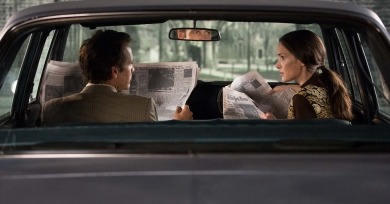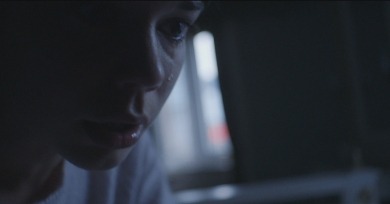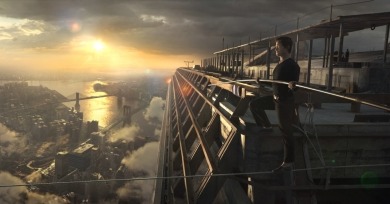Reviews
Instead of trying to reproduce Milgram’s work and life within a traditional dramatic framework, Almereyda draws out a parallel between the manipulation which occurred in the Milgram experiments, and that which occurs in film drama.
Victoria follows in the footsteps of Wim Wenders’s Wings of Desire and Fred Kelemen’s Fate, perhaps the last great films to eloquently characterize the city by employing a cinematic language that reflects its contemporary zeitgeist.
Sicario is a film that rather decadently allows itself to get caught up in the machinations of its American or American-affiliated characters while Mexico looms in the background as an (immaculately photographed) abattoir.
It’s only been in use for two years, but the title of the experimental film and video sidebar of the New York Film Festival, Projections, is already in danger of becoming obsolete.
Taxi interrogates itself—as cinema, as document, and, because of Panahi’s particular political reality, as an expression of artistic freedom. Panahi has taken to a purposeful extreme the notion that strictures and limitations are beneficial to the creation of art.
Following high-wire walker Petit from France to New York City in his monomaniacal pursuit of his mad fantasy, the movie shares its subject’s single-minded dedication to the cause, and this lends it a propulsive momentum.
As Mizuki makes herself a small batch of pastries, each filled with gooey black sesame paste, the camera elegantly tilts away, revealing the space over her shoulder and above her head; it’s a movement implying omniscience and that something, perhaps of the malevolent variety, might lurk just out of our view.
Too often, the film indulges in a tedious solipsism and relies on the most hackneyed of coming-of-age tropes to inspire our pity for Aria.
Structurally, this is classic screwball material, and Maggie’s doomed-to-fail-but-also-kinda-succeed solution should be a hoot to watch unfold. Unfortunately it is not, and the reasons for this are almost too many to track.
An air of cool sophistication can hardly conceal the true geek-show nature of Veronika Franz and Severin Fiala’s Goodnight Mommy.
Gere’s performance, aggressively understated, is subtle to the point of nondescription. His character’s complexity is comprised entirely of a refusal to reveal anything at all, until it dawns on the viewer that this is because there is going to be nothing to reveal.
Though the film’s tonal range might be shifted toward the ambiguous and threatening, Perry’s dark humor remains in effect, and his characters’ ominously suggestive utterances harbor comic irony no less than menace.
In constructing his film in this fashion, Sauper reminds that “characters” are the provenance of fiction, while “people” should be the stuff of documentary films. Thus he doesn’t make an effort to stretch and shape his subjects’ lives to conform to preconceived narrative expectations.
Even if the film builds to a shrug, Baumbach is working at an increasingly sophisticated craft and dialogue level from moment to moment. Endless amounts of near-uniformly quotable dialogue come out at a clip only a shorthand writer could keep pace with.













